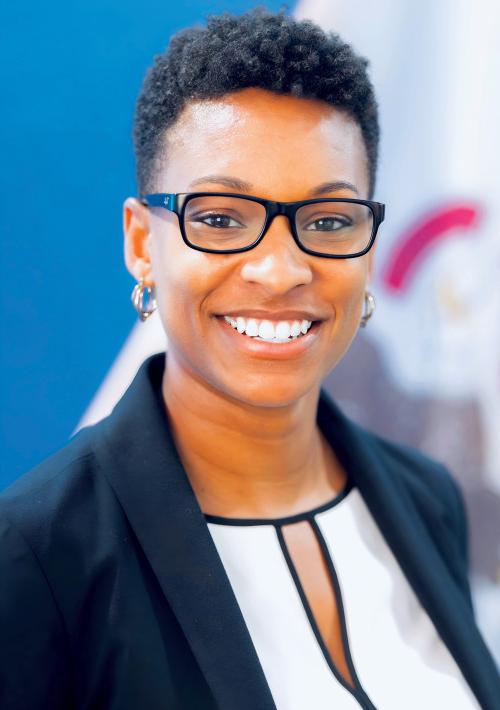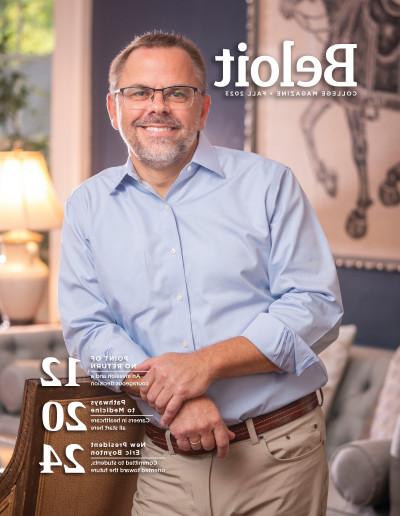Dr. Atiera Coleman’10 paves the way for diversity and inclusion in Illinois
Atiera Coleman, Ph.D. officially assumed the role of Chief Diversity Officer for Illinois Governor J.B. Pritzker’s administration on July 17, 2023.

Credit: Vashon Jordan Jr.Dr. Coleman is a distinguished social equity leader and scholar committed to creating more equitable environments within organizations. Coleman majored in sociology at Beloit and earned her master’s and doctoral degrees from the University of Wisconsin-Milwaukee.
Formerly Beloit College Associate Dean for Student Success, Equity, and Community (SSEC) and co-director of the Weissberg Program in Human Rights & Social Justice, Coleman led the McNair Scholars program, oversaw federally-funded TRIO Programs, and was a partner on the Anti-Racism Liaison team. She outlined the college’s Becoming Better plan’s six goals, tracked their progress, and identified areas for improvement.
Q: How has the first month at the Office of Equity gone for you?
The first month has been very busy. My main goals were building rapport with my team and clarifying the scope of our work; building rapport with all Illinois state agencies, commissions, and stakeholders to better understand their infrastructure, challenges, and areas where my office can provide support; and building rapport with all of the deputy governors who oversee state agencies to ensure our goals align. I’m learning a lot about state government and the uniqueness of Illinois.
Q: What sort of work does your position entail?
The three main pillars of my work are data, reporting, and compliance; training, education, and innovation; and support and building connections.
No two days of my job look the same. Some days I’m in meetings all day, some days I’m steeped in data and statistics trying to understand the trends of the equity work across the state, some days I’m conducting focus groups to understand feedback about pilot trainings we’re launching, and some days I host events to connect different Diversity, Equity, Inclusion, and Accessibility (DEIA) leads from across the state. There are always various projects going on at the same time. I’m grateful to my team within the Equity Office who are a tremendous help in carrying out our ambitious goals.
Q: Why is it important to have an office dedicated to equity and inclusion?
Equity work is everyone’s work, and every position should have a lens to identify inequity.
However, the development of that lens and the building of a culture of equity takes time, education, and an infrastructure of accountability. My office helps ensure that all state agencies have been trained within DEIA, provides reports detailing how they embed equity and inclusion into their work, and supports each agency to empower them to carry out this work successfully.
Q: How did your time at Beloit influence your career path?
It was at Beloit that I discovered sociology, which helped me develop a lens to understand the systemic mechanisms of oppression. It was through various mentors and the McNair Scholars program that I developed skills to conduct academic research, present research in an inclusive and effective way, and helped build my confidence to go on and get additional degrees that would help me achieve my goals.
Q: Who are the mentors who had an impact on you?
There are so many people, places, and spaces at Beloit College that deeply impacted me and helped shape who I am today. To name a few: (the late) Dr. Debra Majeed, Dr. Lisa Anderson-Levy, (the late) Dr. Carla Davis, Dr. Kate Linnenberg, Dr. Charles Westerberg, and Kristin Frey.
All of these individuals had an important role in building my confidence, holding me accountable, pushing me toward opportunities that were life-changing, and mentoring and supporting me throughout my time at Beloit as a student and employee.
Q: What are you proud of in your previous work at Beloit College? What do you feel was your greatest impact?
I’m proud that I had the opportunity to create spaces and programming that allowed so many students to thrive. I know so many students who participated in TRIO programs or worked with me in other capacities who have gone on to do amazing things. They were always brilliant and capable, and I feel grateful to have been a part of the process to ensure their time at Beloit was meaningful and help eliminate barriers that sometimes impede students’ abilities to achieve their goals.
I’m also proud of the original vision of Becoming Better, Beloit’s aspirational goal of being an anti-racist institution. I was a part of the beginning of it, and I’m grateful to have had the opportunity to help create true liberation for all at Beloit and help create an environment where everyone’s humanity is respected regardless of their identity or beliefs.
Q: What do you hope to accomplish as Chief Diversity Officer?
Illinois is one of the few states that has a dedicated executive-level role for DEIA within the governor’s cabinet. I hope to empower agencies throughout the state to create infrastructures to support DEIA and develop an equity lens that allows for growth and inclusion.




